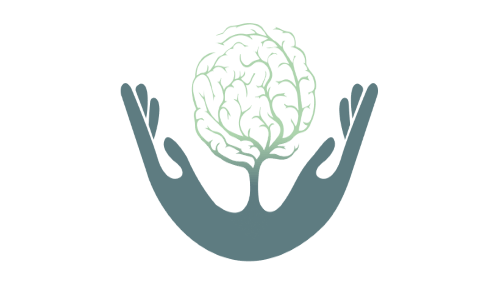loading...

by Amanda Petrik-Gardner, LCPC | Jul 20, 2020 | Uncategorized
 Date course created: July 2020
Date course created: July 2020
Obsessive-Compulsive Disorder (OCD) is often misdiagnosed, due to the stigma that OCD is solely about being “clean” and “organized.” This workshop will assist participants in identifying and diagnosing OCD, while recognizing common themes like Harm OCD, Sexual Orientation OCD, Religious/Scrupulosity OCD, Existential OCD, Relationship OCD, and more. Join us in learning the evidence-based treatment, Exposure & Response Prevention (ERP), over the course of two days. Participants will learn how to apply ERP to all OCD themes.
**This is a 11-CE noninteractive, self-paced online video course delivered in home study format via an industry-standard online learning platform**
Agenda:
Video 1:
00:00 – 00:33: Introduction to OCD and Related Disorders
00:33 – 00:50: Differentiating Obsessive Disorders; Impact of COVID-19
00:50 – 01:23: Common Experiences; Symmetry; Gender Identity Obsessions
01:23 – 02:00: Differentiating OCD from Anxiety; Exposure Therapy; Meta OCD
02:00 – 02:43: Anxiety; Appraisals in OCD; Treatment During the Pandemic
02:43 – 03:40: Compulsions; Avoidance; Connection Between Values and OCD
03:40 – 04:00: Family Dynamics and Treatment Challenges
04:00 – 05:09: Preparing for Exposure Practice; CBT; Treatments for OCD
05:09 – 05:24: Habituation in Exposure Therapy; Role of Exposure; Day 1 Q&A Session
Video 2:
00:00 – 00:46: Introduction; Exposure Techniques; Fears; Moral Obsessions
00:46 – 01:30: Psychoeducation in Treatment; Gender Identity Exposure; Techniques
01:30 – 02:20: Navigating Religious OCD, Death Anxiety; Creative Exposure Techniques
02:20 – 03:02: Intrusive Thoughts; Application of Response Prevention; Meta OCD
03:02 – 03:43: Breaking Down Exposures & Techniques
03:43 – 04:14: Death-Related Thoughts; Contamination Obsessions; Grounding Exercises
04:14 – 04:54: Guidelines for Effective Sessions; Exploring Obsessions; Exposure Challenges
04:54 – 05:43: Compulsions in Therapy; Further Strategies, Techniques, Incentives
Objectives:
a). After completing this training, participants will be able to name the diagnosis and criteria of Obsessive-Compulsive Disorder, and be able to recognize it in a patient.
b). After completing this training, participants will be able to identify 5 different OCD themes.
c). After completing this training, participants will be able to identify 5 possible OCD compulsions.
d). After completing this training, participants will be able to describe the difference between “Taboo Thoughts” OCD versus suicidal or homicidal feelings.
e). After completing this training, participants will be able to differentiate between OCD and Obsessive-Compulsive Personality Disorder.
f). After completing this training, participants will be able to describe the rationale behind the evidence-based treatment of OCD, Exposure & Response Prevention.
g). After completing this training, participants will be able to state the process of habituation.
h). After completing this training, participants will be able to identify possible exposure examples for any OCD theme.
i). After completing this training, participants will be able to practice using a Response Prevention Plan in order to decrease compulsions.
j). After completing this training, participants will be able to create a hierarchy of exposures for a patient with OCD.
k). After completing this training, participants will complete a Practice Record for an imaginal OCD case.
l). After completing this training, participants will be able to name at least one way to trouble shoot situations when Exposure & Response Prevention does not appear to be working.
Target Audience:
Mental Health Clinicians & Therapists, Social Workers, Psychologists, Marriage & Family Therapists, Counselors, School Personnel, Youth Development Workers.
Instructional Level: Intermediate
Instructor(s): Amanda Petrik-Gardner, LCPC
Material Author(s): Amanda Petrik-Gardner, LCPC
Amanda Petrik-Gardner is a Licensed Clinical Professional Counselor in the state of Kansas. She specializes in the treatment of Obsessive-Compulsive Disorder, Body-Focused Repetitive Behaviors and anxiety disorders in her private practice in Topeka, KS. Amanda completed her Bachelor of Arts in Psychology from Kansas State University and her Master of Science in Counseling Psychology from the University of Kansas. Amanda is a member of the International OCD Foundation where she completed the Behavioral Therapy Training Institute. She is a member of the TLC Foundation for BFRBs where she completed the Virtual Professional Training Institute. Amanda is also a board member of OCD Kansas, an affiliate of the International OCD Foundation.
For additional information about this course, the instructors, or the material authors, please contact Content Assistance at content@onlinececredits.com.
Course Materials & Delivery Method:
- Course materials – The course is composed of a recorded presentation and written materials (e.g. a slide deck and/or other worksheets, manuals, or handouts as provided by the instructor). The slide deck and any additional worksheets or handouts (as provided by the instructor) are made available inside the Lesson module after a course is purchased.
- Delivery Method – this course is a recorded asynchronous, self-paced webinar training, and there is no access time limit or due date to complete it once enrolled. The enrolled learner will stream the recorded presentation and view the materials from their internet connected device via an industry-standard online learning platform.
CE Approvals:

Online CE Credits has been approved by NBCC as an Approved Continuing Education Provider, ACEP No. 6795. Programs that do not quality for NBCC credit are clearly identified. Online CE Credits is solely responsible for all aspects of the programs.

Mind Works Professional Education, Inc. DBA Online CE Credits, #1974, is approved as an ACE provider to offer social work continuing education by the Association of Social Work Boards (ASWB) Approved Continuing Education (ACE) program. Regulatory boards are the final authority on courses accepted for continuing education credit. ACE provider approval period: July 23, 2024 – July 23, 2025. Social workers completing this course receive 11 clinical continuing education credits.
Other Helpful Information:
- Refund & Cancellation Policy – you may review this policy at any time by clicking here.
- Accessibility Accommodations – if you require a reasonable accommodation for any reason, please email your request to cc@onlinececredits.com
- Course Completion Requirements – 1.) View the entire Lesson module (accessible from the main course page), to include the embedded and/or linked presentation video(s), slide deck, additional materials, and/or links to any shared video clip(s) that may have been edited from the presentation video(s) to comply with copyright laws. 2.) Click into the Quiz module accessible from either the main course page or the Lesson page and complete the Quiz with an 80% or better pass rate. 3.) Complete the course evaluation – you’ll be sent to the evaluation automatically once you successfully pass the Quiz.
- Posttest Requirements – you must answer 80% or more of the Quiz questions correctly to pass. If you fail to pass the first time, you may attempt the quiz again until you are able to pass with a score of 80% or better. Quizzes are graded instantly and automatically by the learning management system once your attempt is submitted.
- Certificate of Completion – certificates of completion are automatically generated – downloadable from your Dashboard and emailed to you – once you view the Lesson materials and complete the Quiz and the course evaluation.
- How to Enroll – Login to the website first if you already have a user account. If not, you will create your permanent user account login information during course enrollment. Select the appropriate course library using the top menu of the website. Once inside your chosen course library, find and select your desired course to be taken to the main course page. Click the button on the top banner to enroll. When the order window pops up,
- Suggested Browsers: Updated version of Google Chrome, Microsoft Edge, or Apple Safari.
- Recommended Network: Home wifi, ethernet, or a public wifi with VPN (Note: agency or corporate networks are often equipped with restrictive firewalls that may adversely impact your experience on our platform).
- Recommended speed/bandwidth: Minimum download speed > 20Mbps and minimum upload speed > 6Mbps.
- enter your details and place your order. You will be emailed an enrollment confirmation message, and you’ll be sent to a landing page instructing you how to begin your newly enrolled course.
- System Requirements –
- Recommended Devices: Desktop, Laptop, or Tablet computer. (Note: Our platform is mobile responsive and may be fully accessed from a connected smartphone).

by Lea Vincent, MA, PLPC, NCC | Jul 15, 2020 | Uncategorized
 Date course created: July 2020
Date course created: July 2020
This presentation will explore the dynamics of racial identity for African Americans and white Americans, and will dissect how racial trauma has impacted that formation. Such subjects as discrimination and implicit bias will be discussed to uncover how racial trauma has and continues to impact these racial groups. Suggestions on how to utilize this information for personal development and professional advocacy will also be provided.
**This is a 2.5-CE noninteractive, self-paced online video course delivered in home study format via an industry-standard online learning platform**
Agenda:
00:00 – 00:30: Introduction
00:30 – 01:30: Understanding Racial Identity
01:30 – 02:30: Understanding Racial Trauma
Objectives:
a). After completing this training, participants will be able to discuss the dynamics within racial identity for African Americans and white Americans.
b). After completing this training, participants will be able to describe how racism has impacted the racial identity of African Americans and white Americans.
c). After completing this training, participants will be able to name at least two ways racial trauma continues to plague African Americans and white Americans in the present.
d). After completing this training, participants will be able to explore and describe one’s personal racial identity, and state how racism may have impacted that process.
Target Audience:
The target audience for this event includes addictions specialists, psychologists, licensed clinical social workers, licensed counselors, MFT’s, and other clinical mental health professionals.
Instructional Level: Intermediate
Instructor(s): Lea Vincent, MA, PLPC, NCC
Material Author(s): Lea Vincent, MA, PLPC, NCC

Lea Vincent is a native of Kansas City, Missouri. She attended high school at Notre Dame de Sion and went on to the University of Missouri- Columbia where she obtained her Bachelor’s degree in Psychology. She worked in the social services field for 9 years before pursuing her Masters degree in Counseling. She graduated in May 2019 from MidAmerica Nazarene University and is a Provisionally Licensed Professional Counselor (PLPC), Nationally Certified Counselor (NCC), and a member of Chi Sigma Iota International Honor Society. She has experience in several psychotherapy modalities including Eye Movement Desensitization and Reprocessing (EMDR), Dialectical Behavior Therapy (DBT), and Attachment Based Family Therapy (ABFT). She currently works for St. Luke’s Healthcare System as an Intensive In-Home Therapist, and provides individual and couples counseling in private practice part-time. Lea is a consultant, workshop leader, and guest speaker within the mental health community, highlighting issues of mental health stigma in faith-based and underserved communities. Lea is a proud wife of nearly 11 years and mother of three beautiful children and one fur baby! As a Black woman, Lea has a lived experience of the effects of systemic racism and oppression that have shaped her ability to recognize its impact. She has done her own work to develop her cultural identity, and has taken the opportunity to educate and assist others in that process by teaching on the subject in Multicultural classes and personal interviews. Lea believes that being well-rounded is an important part of personal development, and manages to balance pursuits in ministry, family, professional career, and education. She believes that the energy put into personal development will prove to be the most important aspect of one’s professional career and personal life. Lea understands that “the person of the therapist” consists of several facets, including personal identity, cultural identity, spiritual identity, and professional identity. She believes the interweaving of these identities make up the counselor as a whole, and Lea is passionate about recognizing how those may show up in the counseling room. Lea feels that being a therapist is not only a profession, but a ministry and personal calling. She takes pride in aiding in the healing process and creating safe spaces for emotional expression and speaking one’s truth. Lea has a conviction to break the stigma around mental health within the faith-based community with the motto, “See your doctor/therapist, take your meds, and PRAY!”
For additional information about this course, the instructors, or the material authors, please contact Content Assistance at content@onlinececredits.com.
Course Materials & Delivery Method:
- Course materials – The course is composed of a recorded presentation and written materials (e.g. a slide deck and/or other worksheets, manuals, or handouts as provided by the instructor). The slide deck and any additional worksheets or handouts (as provided by the instructor) are made available inside the Lesson module after a course is purchased.
- Delivery Method – this course is a recorded asynchronous, self-paced webinar training, and there is no access time limit or due date to complete it once enrolled. The enrolled learner will stream the recorded presentation and view the materials from their internet connected device via an industry-standard online learning platform.
CE Approvals:

Online CE Credits has been approved by NBCC as an Approved Continuing Education Provider, ACEP No. 6795. Programs that do not quality for NBCC credit are clearly identified. Online CE Credits is solely responsible for all aspects of the programs.

Mind Works Professional Education, Inc. DBA Online CE Credits, #1974, is approved as an ACE provider to offer social work continuing education by the Association of Social Work Boards (ASWB) Approved Continuing Education (ACE) program. Regulatory boards are the final authority on courses accepted for continuing education credit. ACE provider approval period: July 23, 2024 – July 23, 2025. Social workers completing this course receive 2.5 cultural competence continuing education credits.
Other Helpful Information:
- Refund & Cancellation Policy – you may review this policy at any time by clicking here.
- Accessibility Accommodations – if you require a reasonable accommodation for any reason, please email your request to cc@onlinececredits.com
- Course Completion Requirements – 1.) View the entire Lesson module (accessible from the main course page), to include the embedded and/or linked presentation video(s), slide deck, additional materials, and/or links to any shared video clip(s) that may have been edited from the presentation video(s) to comply with copyright laws. 2.) Click into the Quiz module accessible from either the main course page or the Lesson page and complete the Quiz with an 80% or better pass rate. 3.) Complete the course evaluation – you’ll be sent to the evaluation automatically once you successfully pass the Quiz.
- Posttest Requirements – you must answer 80% or more of the Quiz questions correctly to pass. If you fail to pass the first time, you may attempt the quiz again until you are able to pass with a score of 80% or better. Quizzes are graded instantly and automatically by the learning management system once your attempt is submitted.
- Certificate of Completion – certificates of completion are automatically generated – downloadable from your Dashboard and emailed to you – once you view the Lesson materials and complete the Quiz and the course evaluation.
- How to Enroll – Login to the website first if you already have a user account. If not, you will create your permanent user account login information during course enrollment. Select the appropriate course library using the top menu of the website. Once inside your chosen course library, find and select your desired course to be taken to the main course page. Click the button on the top banner to enroll. When the order window pops up, enter your details and place your order. You will be emailed an enrollment confirmation message, and you’ll be sent to a landing page instructing you how to begin your newly enrolled course.
- System Requirements –
- Recommended Devices: Desktop, Laptop, or Tablet computer. (Note: Our platform is mobile responsive and may be fully accessed from a connected smartphone).
- Suggested Browsers: Updated version of Google Chrome, Microsoft Edge, or Apple Safari.
- Recommended Network: Home wifi, ethernet, or a public wifi with VPN (Note: agency or corporate networks are often equipped with restrictive firewalls that may adversely impact your experience on our platform).
- Recommended speed/bandwidth: Minimum download speed > 20Mbps and minimum upload speed > 6Mbps.

by Crystal Rozelle–Bennett, LMSW | Jul 1, 2020 | Uncategorized
 Date course created: July 2020
Date course created: July 2020
Professor Alvin Poussaint described the cumulative impact of microaggressions as “death by a thousand nicks”. What might seem small and insignificant can become ingrained into the very fiber of one’s being, causing the body to live in a constant state of alert. This workshop will utilize the conventional and expanded Adverse Childhood Experiences (ACE) studies to discuss how racial trauma impacts the physical, social, and psychological health of individuals and communities. Participants will recognize systemic oppressions, confront implicit bias and engage in dialogue around racial healing, empowerment and equity.
**This is a 5-CE noninteractive, self-paced online video course delivered in home study format via an industry-standard online learning platform**
Agenda:
00:00 – 01:00: Introduction
01:00 – 02:00: Definitions & Discussions
02:00 – 04:00: Trauma Details
04:00 – 05:00: Healing & Strategies
Objectives:
a). After completing this training, participants will be able to describe the conventional and expanded ACE studies to increase understanding of community level adversities.
b). After completing this training, participants will be able to define racism, implicit bias, and microaggression.
c). After completing this training, participants will be able to discuss white privilege and white fragility and strategies to become allies and accomplices for anti-racism work.
d). After completing this training, participants will be able to define internalized racism, the role of structural racism in the development of internalized racism, and the importance of eliminating systemic oppression to resolve internalized racism.
e). After completing this training, participants will be able to state how to apply a trauma informed lens to explore the impact of historical trauma from the cradle to the grave.
f). After completing this training, participants will be able to discuss strategies to break down historic and present systems of oppression, build physical and emotional safety, validate experiences and emotions, and empower impacted individuals and communities.
Target Audience:
The target audience for this event includes addictions specialists, psychologists, licensed clinical social workers, licensed counselors, MFT’s, and other clinical mental health professionals.
Instructional Level: Intermediate
Instructor(s): Crystal Rozelle–Bennett, LMSW
Material Author(s): Crystal Rozelle–Bennett, LMSW

Crystal Rozelle – Bennett, LMSW has been working with youth and families for nearly 20 years. She is committed to empowering, engaging, educating and advocating in order to implement trauma-informed strategies for individuals and communities. Mrs. Bennett earned a Bachelor’s in Arts in Psychology from Wells College and went on to complete her Masters in Social Work from Florida State University. During her career, Ms. Bennett has demonstrated a passion in sharing her personal and professional experiences with others to serve marginalized individuals and prevent re-traumatization. Ms. Bennett is a life longer learner and has provided education and support to foster families, facilitated psychoeducation programs for youth, responded to crisis hotline calls for the Department of Veterans Affairs, and trained behavioral healthcare professionals in the areas of Human Trafficking, Suicide Prevention, Child Trauma/Maltreatment, Motivational Interviewing, Racial Trauma, Cultural Competency and serving LGBT youth.
For additional information about this course, the instructors, or the material authors, please contact Content Assistance at content@onlinececredits.com.
Course Materials & Delivery Method:
- Course materials – The course is composed of a recorded presentation and written materials (e.g. a slide deck and/or other worksheets, manuals, or handouts as provided by the instructor). The slide deck and any additional worksheets or handouts (as provided by the instructor) are made available inside the Lesson module after a course is purchased.
- Delivery Method – this course is a recorded asynchronous, self-paced webinar training, and there is no access time limit or due date to complete it once enrolled. The enrolled learner will stream the recorded presentation and view the materials from their internet connected device via an industry-standard online learning platform.
CE Approvals:

Online CE Credits has been approved by NBCC as an Approved Continuing Education Provider, ACEP No. 6795. Programs that do not quality for NBCC credit are clearly identified. Online CE Credits is solely responsible for all aspects of the programs.

Mind Works Professional Education, Inc. DBA Online CE Credits, #1974, is approved as an ACE provider to offer social work continuing education by the Association of Social Work Boards (ASWB) Approved Continuing Education (ACE) program. Regulatory boards are the final authority on courses accepted for continuing education credit. ACE provider approval period: July 23, 2024 – July 23, 2025. Social workers completing this course receive 5 cultural competence continuing education credits.
Other Helpful Information:
- Refund & Cancellation Policy – you may review this policy at any time by clicking here.
- Accessibility Accommodations – if you require a reasonable accommodation for any reason, please email your request to cc@onlinececredits.com
- Course Completion Requirements – 1.) View the entire Lesson module (accessible from the main course page), to include the embedded and/or linked presentation video(s), slide deck, additional materials, and/or links to any shared video clip(s) that may have been edited from the presentation video(s) to comply with copyright laws. 2.) Click into the Quiz module accessible from either the main course page or the Lesson page and complete the Quiz with an 80% or better pass rate. 3.) Complete the course evaluation – you’ll be sent to the evaluation automatically once you successfully pass the Quiz.
- Posttest Requirements – you must answer 80% or more of the Quiz questions correctly to pass. If you fail to pass the first time, you may attempt the quiz again until you are able to pass with a score of 80% or better. Quizzes are graded instantly and automatically by the learning management system once your attempt is submitted.
- Certificate of Completion – certificates of completion are automatically generated – downloadable from your Dashboard and emailed to you – once you view the Lesson materials and complete the Quiz and the course evaluation.
- How to Enroll – Login to the website first if you already have a user account. If not, you will create your permanent user account login information during course enrollment. Select the appropriate course library using the top menu of the website. Once inside your chosen course library, find and select your desired course to be taken to the main course page. Click the button on the top banner to enroll. When the order window pops up, enter your details and place your order. You will be emailed an enrollment confirmation message, and you’ll be sent to a landing page instructing you how to begin your newly enrolled course.
- System Requirements –
- Recommended Devices: Desktop, Laptop, or Tablet computer. (Note: Our platform is mobile responsive and may be fully accessed from a connected smartphone).
- Suggested Browsers: Updated version of Google Chrome, Microsoft Edge, or Apple Safari.
- Recommended Network: Home wifi, ethernet, or a public wifi with VPN (Note: agency or corporate networks are often equipped with restrictive firewalls that may adversely impact your experience on our platform).
- Recommended speed/bandwidth: Minimum download speed > 20Mbps and minimum upload speed > 6Mbps.

by Amanda Petrik-Gardner, LCPC | Jun 9, 2020 | Uncategorized
 The benefits of marketing on social media for therapists are numerous. Even better, it is a free marketing resource! However, almost every therapist is on Instagram and Facebook, so how do we get engagement activity on your account above the others? In this workshop, we explore how social media can benefit your practice to include: referrals, networking, selling your products, speaking events, and more. We’ll cover specific social media platforms and their related marketing techniques that connect you to your ideal audience. Lastly, you’ll learn how to create content that resonates with your target audience members to help drive ongoing conversions and increase customer lifetime value.
The benefits of marketing on social media for therapists are numerous. Even better, it is a free marketing resource! However, almost every therapist is on Instagram and Facebook, so how do we get engagement activity on your account above the others? In this workshop, we explore how social media can benefit your practice to include: referrals, networking, selling your products, speaking events, and more. We’ll cover specific social media platforms and their related marketing techniques that connect you to your ideal audience. Lastly, you’ll learn how to create content that resonates with your target audience members to help drive ongoing conversions and increase customer lifetime value.
Note: this is a professional practice seminar – No CE’s are offered with this course.
Cost: $62.50 – Want to attend this event and any future event or course from our CE library AND professional development library for FREE and unlimited for the cost of $25/month for 12 months??!! Check out our Everything Plan here.
Objectives:
a). Name at least three ways in which social media marketing can benefit your practice.
b). List as least three social media platforms therapists can market on.
c). Practice creating your own content for your social media platform.
d). Identify five techniques on Instagram to connect to your audience.
e). Identify three techniques on Facebook to connect to your audience.
Target Audience:
The target audience for this event includes any clinical mental health professional who wants to better connect with their target audience online, start a new private practice, improve an existing private practice, or build a professional brand as a trusted expert in clinical mental health. See our other available professional practice seminars here.
Instructional Level: Intermediate
Instructor(s): Amanda Petrik-Gardner, LCPC
Material Author(s): Amanda Petrik-Gardner, LCPC
Amanda Petrik-Gardner is a Licensed Clinical Professional Counselor in the state of Kansas. She specializes in the treatment of Obsessive-Compulsive Disorder, Body-Focused Repetitive Behaviors and anxiety disorders in her private practice in Topeka, KS. In her first month in private practice, she had 100 appointments scheduled. Through her first year, she was able to eliminate all evening and weekend hours, terminate from all but one insurance contract, to make over six figures! Amanda completed her Bachelor of Arts in Psychology from Kansas State University and her Master of Science in Counseling Psychology from the University of Kansas. Amanda is a member of the International OCD Foundation where she completed the Behavioral Therapy Training Institute. She is a member of the TLC Foundation for BFRBs where she completed the Virtual Professional Training Institute. Amanda is also a board member of OCD Kansas, an affiliate of the International OCD Foundation.
For additional information about this course, the instructors, or the material authors, please contact Content Assistance at content@onlinececredits.com.
Featured Materials :
Course materials for online asynchronous courses are found in the Lesson module after a course is purchased.

by Robert Cox, LPC | Jun 9, 2020 | Uncategorized
 Date course created: June 2020
Date course created: June 2020
This workshop is directed at exploring the link between trauma, attachment, and addictions. From sexual addictions to alcohol and drug addictions, we will look at how trauma and damage to attachment patterns play out and how to move into recovery in a safe and healthy way. We will focus heavily on the role played by shame and the shame cycle and how to determine what treatment modalities are most effective depending on level and type of addiction. Methods for assessment of addiction and comorbid mental health concerns will also be covered.
**This is a 4.25-CE noninteractive, self-paced online video course delivered in home study format via an industry-standard online learning platform**
Agenda:
00:00 – 01:00: Trauma and Attachment Damage
01:00 – 02:00: Developing Brain and Attachment
02:00 – 03:00: Addictions – Types and Processes
03:00 – 03:45: Understanding Traumas
03:45 – 04:15: Understanding Brain Functioning
Objectives:
a). After completing this training, participants will be able to identify at least two regions of the brain affected by trauma and addictions.
b). After completing this training, participants will be able to practice assessing levels of addiction and comorbidities and determine treatment modalities accordingly.
c). After completing this training, participants will be able to state why 12 step programs and non-12 step groups (including therapy groups) can be centers for healing.
d). After completing this training, participants will be able to describe how shame and the shame cycle play a part in addiction and relapse cycles.
e). After completing this training, participants will be able to identify the role that attachment plays in healing.
Target Audience:
The target audience for this event includes addictions specialists, psychologists, licensed clinical social workers, licensed counselors, MFT’s, and other clinical mental health professionals.
Instructional Level: Intermediate to Advanced
Instructor(s): Robert Cox, LPC
Material Author(s): Robert Cox, LPC
Robert Cox is an LPC in the state of Missouri and the president-elect of the American Counseling Association of Missouri. He owns a mental health practice, Life Recovery Consulting, with offices in Richmond and Liberty, MO. Robert is the author of the book, “The Life Recovery Method: Autism Treatment From a Trauma Perspective” and he specializes in Trauma with focuses in addiction and autism. Robert lectures frequently on regional and national levels about the issues of trauma, attachment and connection.
For additional information about this course, the instructors, or the material authors, please contact Content Assistance at content@onlinececredits.com.
Course Materials & Delivery Method:
- Course materials – The course is composed of a recorded presentation and written materials (e.g. a slide deck and/or other worksheets, manuals, or handouts as provided by the instructor). The slide deck and any additional worksheets or handouts (as provided by the instructor) are made available inside the Lesson module after a course is purchased.
- Delivery Method – this course is a recorded asynchronous, self-paced webinar training, and there is no access time limit or due date to complete it once enrolled. The enrolled learner will stream the recorded presentation and view the materials from their internet connected device via an industry-standard online learning platform.
CE Approvals:

Online CE Credits has been approved by NBCC as an Approved Continuing Education Provider, ACEP No. 6795. Programs that do not quality for NBCC credit are clearly identified. Online CE Credits is solely responsible for all aspects of the programs.

Mind Works Professional Education, Inc. DBA Online CE Credits, #1974, is approved as an ACE provider to offer social work continuing education by the Association of Social Work Boards (ASWB) Approved Continuing Education (ACE) program. Regulatory boards are the final authority on courses accepted for continuing education credit. ACE provider approval period: July 23, 2024 – July 23, 2025. Social workers completing this course receive 4.25 clinical continuing education credits.
Other Helpful Information:
- Refund & Cancellation Policy – you may review this policy at any time by clicking here.
- Accessibility Accommodations – if you require a reasonable accommodation for any reason, please email your request to cc@onlinececredits.com
- Course Completion Requirements – 1.) View the entire Lesson module (accessible from the main course page), to include the embedded and/or linked presentation video(s), slide deck, additional materials, and/or links to any shared video clip(s) that may have been edited from the presentation video(s) to comply with copyright laws. 2.) Click into the Quiz module accessible from either the main course page or the Lesson page and complete the Quiz with an 80% or better pass rate. 3.) Complete the course evaluation – you’ll be sent to the evaluation automatically once you successfully pass the Quiz.
- Posttest Requirements – you must answer 80% or more of the Quiz questions correctly to pass. If you fail to pass the first time, you may attempt the quiz again until you are able to pass with a score of 80% or better. Quizzes are graded instantly and automatically by the learning management system once your attempt is submitted.
- Certificate of Completion – certificates of completion are automatically generated – downloadable from your Dashboard and emailed to you – once you view the Lesson materials and complete the Quiz and the course evaluation.
- How to Enroll – Login to the website first if you already have a user account. If not, you will create your permanent user account login information during course enrollment. Select the appropriate course library using the top menu of the website. Once inside your chosen course library, find and select your desired course to be taken to the main course page. Click the button on the top banner to enroll. When the order window pops up, enter your details and place your order. You will be emailed an enrollment confirmation message, and you’ll be sent to a landing page instructing you how to begin your newly enrolled course.
- System Requirements –
- Recommended Devices: Desktop, Laptop, or Tablet computer. (Note: Our platform is mobile responsive and may be fully accessed from a connected smartphone).
- Suggested Browsers: Updated version of Google Chrome, Microsoft Edge, or Apple Safari.
- Recommended Network: Home wifi, ethernet, or a public wifi with VPN (Note: agency or corporate networks are often equipped with restrictive firewalls that may adversely impact your experience on our platform).
- Recommended speed/bandwidth: Minimum download speed > 20Mbps and minimum upload speed > 6Mbps.

 Date course created: July 2020
Date course created: July 2020




 Date course created: July 2020
Date course created: July 2020

 Date course created: July 2020
Date course created: July 2020


 Date course created: June 2020
Date course created: June 2020